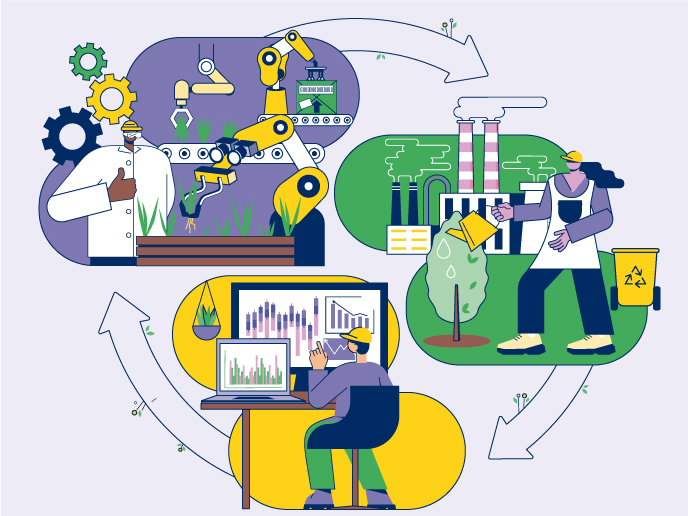Building smarter and more sustainably with green manufacturing
Climate change is a significant threat to the security and prosperity of Europe, and the wider world. Addressing this challenge means finding solutions that can satisfy economic and social needs while minimising impact on the environment. Europe’s manufacturing industry is responsible for a quarter of its business economy turnover, and is a significant contributor to the EU’s greenhouse gas emissions. As such, transformative changes to manufacturing are central to the delivery of the European Green Deal, as well as the twin Green and Digital Transitions. Among these transformations is zero-defect manufacturing, a strategy which aims to reduce waste, optimise energy usage and lead to higher-quality products. Using digital tools such as connected sensors, internet of things (IoT) devices and artificial intelligence (AI), companies can improve their position on the market and become more competitive. In addition, support for more sustainable manufacturing practices can help the production of high-quality products, minimise environmental impact and foster a healthier and more sustainable manufacturing ecosystem overall. To accelerate the transition to climate neutrality, the Green Deal Industrial Plan is creating a more supportive environment for scaling up the EU’s manufacturing capacity for net zero technologies. Meanwhile, advanced technological solutions such as AI systems, virtual and augmented reality systems, smart sensors and collaborative robotics are being implemented by the Horizon 2020 European Factories of the Future initiative, a EUR 1.15 billion public-private partnership for advanced manufacturing research and innovation. The work continues under Horizon Europe as Made in Europe. With support from the EU, the European manufacturing industry is positioning itself to lead in the 21st century as a more flexible, sustainable and resilient sector, delivering both the material goods needed by the world, and a sustainable, climate-neutral future. All of the challenges above are addressed by the projects featured in this Pack, which make use of a range of state-of-the-art solutions. Digital tools developed by the LEVEL-UP and RECLAIM projects can increase the working life of machinery in industries such as woodworking, aeronautics, toolmaking and more. By detecting potential problems early in the manufacturing process, software designed by the DAT4.ZERO and OPTIMAI projects allows predictive maintenance, boosting production efficiency. AI-powered methods developed by the EU-funded InterQ project help maintain product quality and efficiency, while the i4Q project’s easy-to-use tools support zero-defect manufacturing by continuously collecting and analysing data along factory production lines.



